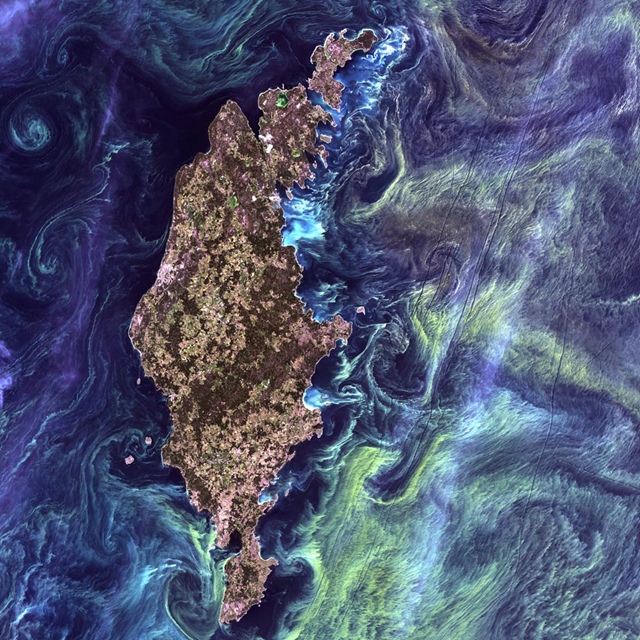Research uncovers new threat from harmful algae
March 3, 2011 (University of Plymouth) — Harmful algae could be producing substances which affect reproduction in organisms with similar genetic characteristics as humans according to groundbreaking new research. A scientist from the University of Plymouth has discovered that algae release substances which interfere with the activity of reproductive hormones in some fish. Dr. Ted Henry, an ecotoxicologist at the University, has established that toxic algal blooms contain substances other than toxins which pose unexpected environmental risks. Although it has long been recognized by experts that algae produce toxins with harmful effects, this is the first time research has shown that other substances with potential to disrupt the endocrine system – glands which release hormones into the bloodstream to regulate the body – may also be present. Scientists had previously believed those changes were caused by human-made pollutants in water. During controlled tests, Emily Rogers, a PhD student supervised by Dr. Henry, found that zebrafish – a model organism used in laboratory experiments – exhibited responses consistent with endocrine disruption when fish were exposed to the toxic algae Microcystis, leading to the conclusion that the algae were producing as-yet unidentified substances with estrogenic properties. The study suggests that algae, although a naturally occurring substance, could contribute to observations of reproductive system dysfunction in wild fish. …
